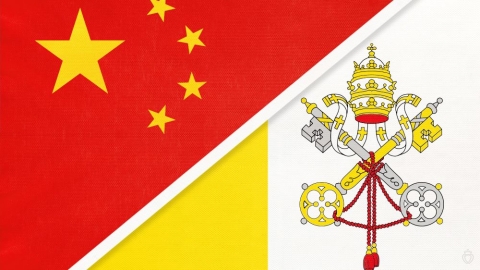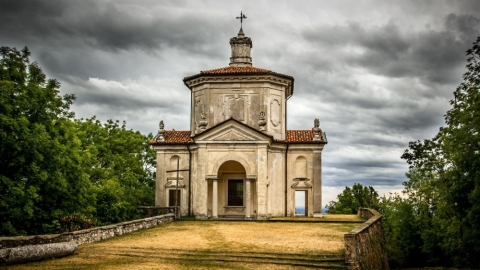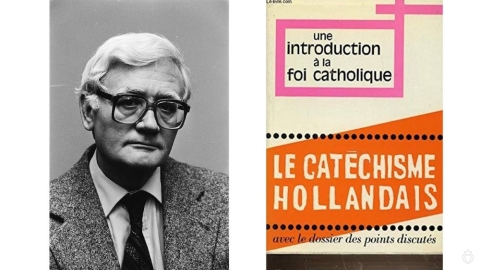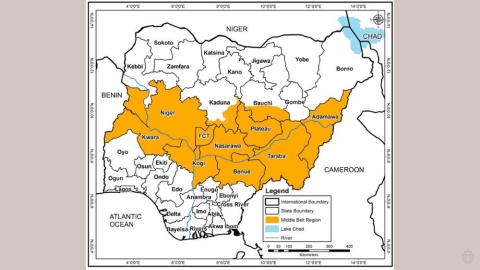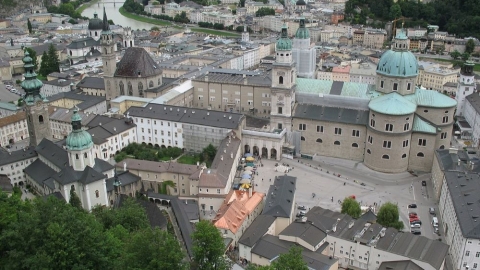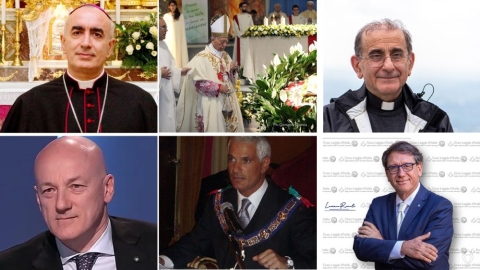Cardinal Zen on the Dialogue with China
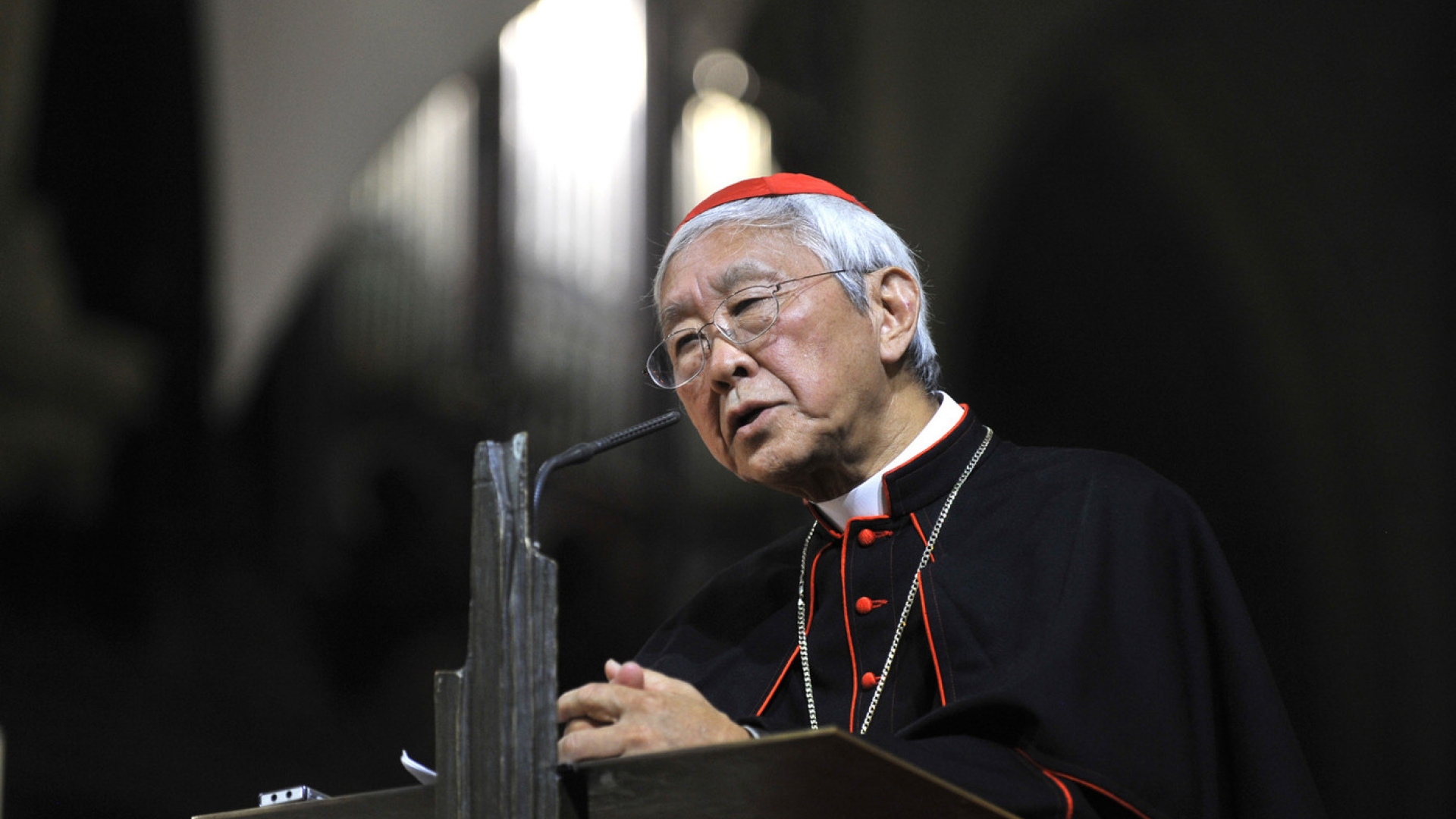
Cardinal Joseph Zen Ze-kiun
“The disaster has already begun....The clandestine priests of Shanghai asked their faithful to stop coming to their Masses under penalty of being arrested if they persisted in doing so!”
On January 31, 2018, Eglises d’Asie (EDA), the news agency of the Foreign Missions of Paris, published an article by Anthony Lam Sui-ki, a researcher of Holy Spirit Study Center of the Diocese of Hong Kong. It appeared in issue no. 187 of Tripod, the quarterly review of the Center. In it the author points out the dangerous provisions of the new governmental regulation concerning religious affairs in China, which took effect of February 1, 2018. Two new chapters, on “Religious Schools” and “Religious Activities” are incorporated in the reforms introduced by President Xi Jinping. They state that all non-religious groups “must not hold religious activities, must not accept religious gifts, must not give religious formation and must not encourage citizens to participate in religious formation, meetings and activities abroad.” Described in this way as “non-religious” is any group not recognized by the government as such, which becomes, the researcher explains, “a tool for limiting the practice of clandestine religious groups”.
Several days later, on February 5, the Cardinal emeritus of Hong Kong Joseph Zen Ze-kiun announced on his blog oldyosef.hkdavc: “The disaster has already begun....The clandestine priests of Shanghai asked their faithful to stop coming to their Masses under penalty of being arrested if they persisted in doing so!” This detail was reported in the response that the Cardinal sent to the Vatican Secretary of State, Abp. Pietro Parolin, who is described by the Chinese prelate as “a man of little faith”, within the context of the rapprochement of the Holy See with China. The article, translated from Chinese and published by the Italian Vaticanist Sandro Magister, appears after an interview of Cdl. Zen Ze-kiun with Pope Francis on January 12, 2018, at the Vatican.
An Agreement between Saint Joseph and Herod?
In fact, deeply disturbed by recent steps taken by representatives of the Vatican in China and by the situation of the bishops of the clandestine Church, who are being sacrificed in the framework of the rapprochement of the Holy See with China, the Chinese prelate traveled to Rome to attend the Wednesday audience on January 10 and personally to put two letters into the Pope’s hands. Later received in audience for a half hour on Friday evening, January 12, the Cardinal described in the presence of the Holy Father the situation of Bp. Peter Zhuang Jianjian, Bishop of Shantou in the Province of Guangdong, and of Bp. Guo Xijin, Bishop of Mindong, both legitimate bishops summoned by a delegation from Rome to resign from their episcopal sees for the benefit of official bishops who have pledged allegiance to the Chinese government.
On January 22, 2018, the agency AsiaNews of the Foreign Missions of Milan reported that in December 2017 a delegation from the Vatican met Bp. Zhuang Jianjian in Beijing, asking him for the second time to relinquish his See to Bp. Joseph Huang Bingzhang, an official bishop not recognized by Rome and a member of the National People’s Congress, the Chinese parliament. Bp. Zhuang Jianjian, 88 years old, was secretly ordained in 2006 with the approval of the Vatican but never recognized officially by the regime. He refused to comply with the Roman request, the agency explains. This is why Cardinal Zen was instructed by the bishop to deliver a letter to Pope Francis....
On January 29, Cardinal Zen decided to breach the confidentiality of his conversation with the Pope in the name of “the right to the truth”. On his blog he declares that he asked the Holy Father “whether he had the time to study the question” [about the bishops] as he had promised in the past. Francis replied that he had declared to his collaborators: “I don’t want another Mindszenty affair.”
The Cardinal adds in his article, which was published also by Sandro Magister, that in speaking with the Supreme Pontiff he emphasized:
...the problem is not the resignation of the legitimate bishops, but the request to give their office to the illegitimate, excommunicated bishops. Even though the law about resignation upon reaching the age limit was never applied in China, many aged clandestine bishops have insistently demanded that a successor be appointed for them, without ever receiving a response from the Holy See. Others, who already have a designated successor, have received the order not to proceed to ordain him for fear of offending the government.
The Cardinal explains that he spoke by name about the two bishops of Shantou and Mindong. He continues by admitting that he is pessimistic about the current situation of the Church in China and that because of his long experience with the Church in China and some recent news, he cannot be otherwise: the Communist government is in the process of “implementing laws that until now existed only on paper”. The Chinese prelate then exclaims: “But is it possible to have something ‘in common’ with a totalitarian regime? Could anyone imagine an agreement between Saint Joseph and King Herod?”
On January 30, a communiqué published by the Press Office of the Holy See stated:
The Pope is in constant contact with his collaborators, in particularly with the Secretariat of State, about the Chinese questions. He is informed by them faithfully and in detail about the situation of the Catholic Church in China and about the stages of the current dialogue between the Holy See and the People’s Republic of China, which he accompanies with very special solicitude. It is surprising and regrettable that some persons in the Church declare the contrary, thus fueling so many confusions and polemics.
Similarly, on January 31, Cardinal Pietro Parolin defended the policy of dialogue being pursued with China. Responding to the severe warnings from Cardinal Joseph Zen, the Secretary of State of the Holy See explains that the purpose of the negotiations with Beijing is to allow the faithful to “feel fully Catholic and at the same time authentically Chinese”.
In an interview granted on February 3 to Gianni Valente of Vatican Insider, Cardinal Parolin explains “why we are dialoguing with China” and emphasizes that the Holy See is seeking “a synthesis of truth and a practicable way to respond,” which requires time and patience. Given the prospect of a possible agreement, he maintains, a “sacrifice” may be demanded of some for the “good of the Church”. According to a Vatican source cited by the news agency Reuters on February 1 of this year, a framework-agreement with China on the appointment of bishops was ready and could be signed in a few months.
Cardinal Casaroli’s Ostpolitik Diplomacy
That was when Cardinal Zen responded point by point to the Secretary of State in an article entitled: “I still don’t understand why they are dialoguing with China.” It appeared in Italian on February 13 on his blog and was reprinted that same day by Sandro Magister. It then appeared on the Cardinal’s website in English on the 17th and in Chinese on the 18th. Stressing Cardinal Parolin’s insistence on declaring that he is operating in a pastoral, evangelical and spiritual manner, and saying that he is facing an attitude that he describes as purely political on the part of his opponents, Cardinal Zen recalls
...a report in the Osservatore Romano a few years ago on a speech that he (Cardinal Parolin) had given where he describes the heroes of the faith in the central European countries under the communist regime (Cardinals Wyszynsky, Mindszenty and Beran, without mentioning them) as ‘gladiators’, ‘people systematically opposed to the government and eager to appear on the political stage’.
The Chinese Cardinal also recalls that “the Communists want to enslave the Church.” How can anyone think that he can speak “about communion and collaboration”? “But are the conditions right? How can we collaborate?” he asks.
The Bishop emeritus of Hong Kong asks about the unity being sought when “there are two communities with two structures based on two different, opposing principles. One structure is founded on the principle of the Primacy of Peter on which Jesus established His Church; the other structure is imposed by an atheistic government intent on creating a schismatic Church subject to its power.”
Cardinal Zen firmly denounces the diplomacy of Cardinal Parolin, which is none other, he explains, than the “Ostpolitik diplomacy of his master Casaroli,” declaring “that he despises the genuine faith of those who firmly defend the Church that founded by Jesus on the Apostles from any interference by secular power.” Now Rome is concerned about the fact that the clandestine condition of the Chinese Church “is not a normal feature of the Church’s life”. The Chinese Cardinal continues:
Our diplomats want a miracle and they want it now... and also accuse others of clinging ‘to the spirit of opposition to condemn his brother or use the past as an excuse to stir up new resentments and closures’ and of not being ready ‘to forgive, this mean, unfortunately, that there are other interests to defend.’
The Chinese prelate then expresses indignation about such an attitude: “These are really cruel reproaches to address to faithful members of the Church, who for many years have suffered every kind of deprivation and oppression for their fidelity to the true Church!”
And he poses questions about the future of this Church of silence: “What will become of those Bishops who are legitimate according to the law of the Church but who are not recognized by the Government? Will they be ‘accepted’? That is, admitted to the cage? Will there finally be ‘one’ legitimate episcopal conference? (With the Government holding the key to the cage?)”
Cardinal Zen is not the only one worried about the prospect of such an agreement. The Catholic website Crux reported on February 12 that at the initiative of over a dozen Catholic university professors and lawyers from Hong Kong an open letter had been published expressing concern about the “confusion and the punishment” in the case of a treaty. They think that it would be “an irreversible and regrettable mistake”. It is not possible to believe that such a treaty would result in an end to the persecutions against the Church by the Chinese government, they declare.
From another perspective, Father Drew Christiansen, former editor-in-chief and president of the liberal Jesuit magazine America, published that same day on the magazine’s website an article entitled “Why the potential agreement of the Vatican with China is a good thing”. According to the American priest, it would not be “a new start” but rather “the result of long trends in the life of the local Church and of Vatican-Beijing relations”.
In the same spirit, on February 9, 2017, the agency Eglises d’Asie of the Foreign Missions of Paris published a text that was reprinted on the websites of the newspapers in the Diocese of Hong Kong (Kung Kao Po in Chinese and Sunday Examiner in English), in which Cardinal John Tong Hon, then Bishop of Hong Kong, already elaborated all the reasons in favor of concluding an agreement between China and the Vatican. Shortly before relinquishing the See to Bp. Michael Yeung, Cardinal Tong reasoned that “if Beijing is ready today for an agreement with the Holy See on the nomination of bishops, the Church in China will enjoy one essential liberty, even if she will not be able to enjoy complete liberty”, arguing that “between two evils, the Church should choose the lesser evil.” – Cardinal Tong, now Bishop emeritus of Hong Kong, heads the Holy Spirit Study Center of the Diocese of Hong Kong for research on the Church in China, founded in 1980.
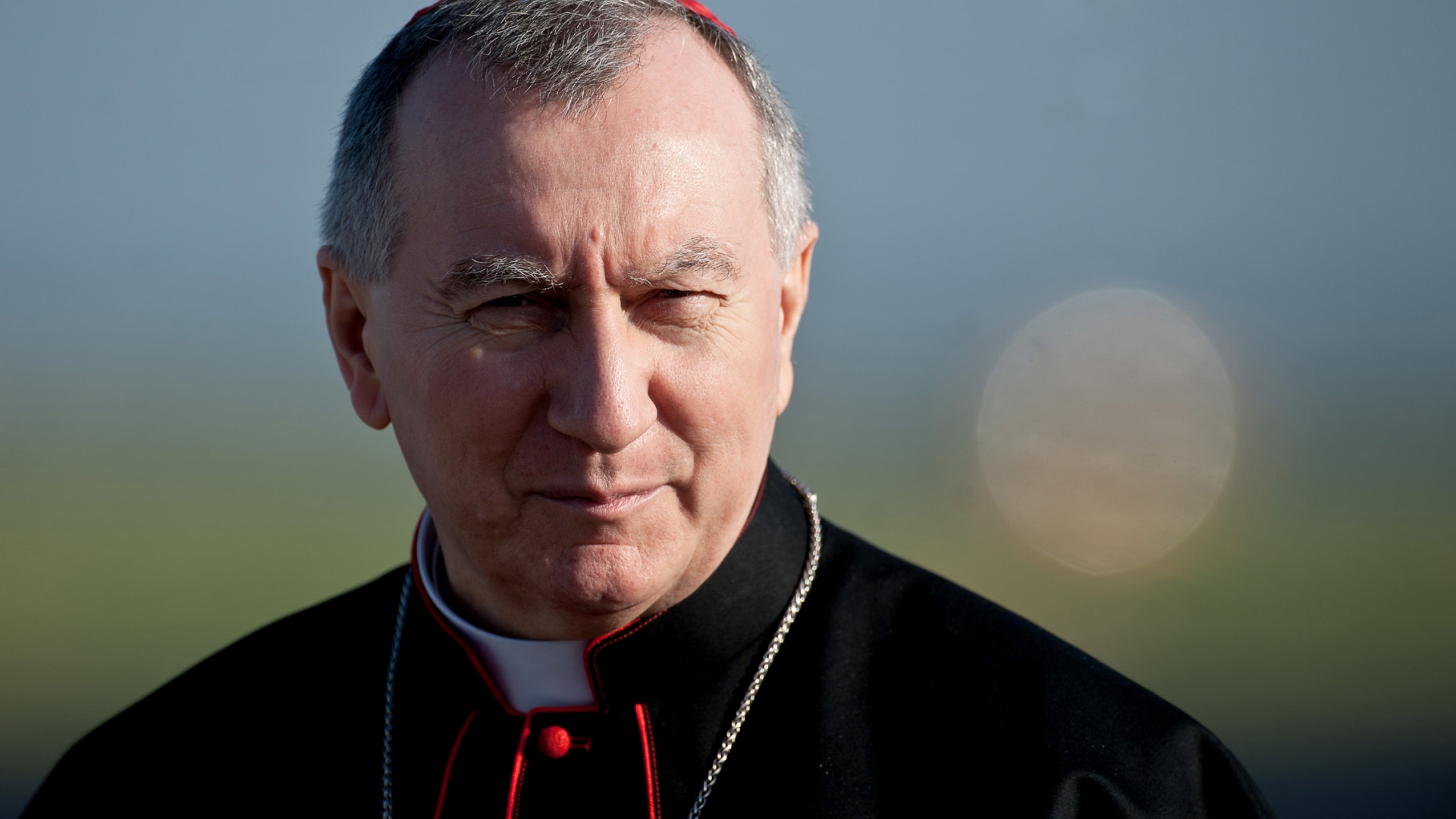
Cardinal Pietro Parolin.
La diplomatie de l’Ostpolitik du cardinal Casaroli
C’est alors que le cardinal Zen répond point par point au secrétaire d’Etat dans un article intitulé : « Je n’arrive toujours pas à comprendre pourquoi ils dialoguent avec la Chine ». Paru en italien le 13 février sur son blogue, il est repris le jour même par Sandro Magister. Il paraîtra ensuite en anglais le 17 et en chinois le 18, sur le site du cardinal. Soulignant l’insistance du cardinal Parolin à affirmer œuvrer de façon pastorale, évangélique et spirituelle, et disant faire face à une attitude qu’il qualifie de purement politique de la part de ses opposants, le cardinal Zen rappelle « l’un de ses discours publié il y a quelques années dans L’Osservatore Romano où il (cardinal Parolin) qualifiait les héros de la foi des pays d’Europe centrale sous le régime communiste (les cardinaux Wyszyński, Mindszenty et Beran pour ne pas les nommer) de “gladiateurs”, de “personnes systématiquement contraires au gouvernement et avides d’apparaître sur l’avant-plan politique” ».
Le cardinal chinois rappelle encore que « les communistes veulent réduire l’Eglise en esclavage ». Comment envisager pouvoir parler « de communion et de collaboration » ? Les conditions sont-elles réunies ? Quels sont les points de convergence ? », demande-t-il. L’évêque émérite de Hong Kong s’interroge sur l’unité recherchée, quand « il y a deux communautés avec des structures basées sur des principes différents et opposés. L’une de ces structures est basée sur le principe du Primat de Pierre sur lequel Jésus a bâti son Eglise et l’autre structure est imposée par un gouvernement athée décidé à créer une Eglise schismatique soumise à son pouvoir ».
Le cardinal Zen dénonce fermement la diplomatie du cardinal Parolin qui n’est autre, explique-t-il, que cette « diplomatie de l’Ostpolitik de son maître Casaroli », déclarant « qu’il méprise la foi authentique de ceux qui défendent avec fermeté l’Eglise que Jésus a fondée sur les Apôtres, de toute ingérence du pouvoir séculier ». Il s’agit désormais pour Rome de soutenir que la clandestinité de l’Eglise chinoise « ne rentre pas dans la normalité de la vie de l’Eglise », et « nos diplomates, poursuit le cardinal chinois, veulent réaliser un miracle tout de suite en accusant les autres de “s’agripper à l’esprit de contradiction pour condamner le frère” et “de se servir du passé comme d’un prétexte pour fomenter de nouvelles rancœurs et de nouvelles fermetures”, et de ne pas “être prêts à pardonner, ce qui signifie qu’il y a d’autres intérêts à défendre” ». Le prélat chinois s’indigne alors d’une telle attitude : « Comme ils sont cruels ces reproches adressés à des membres fidèles de l’Eglise qui ont souffert pendant de nombreuses années toutes sortes de privations et de vexations pour leur fidélité à l’Eglise ! »
Et de poser les questions de l’avenir de cette Eglise du silence : « Quel sort sera réservé aux évêques légitimes selon la loi de l’Eglise, mais non reconnus par le gouvernement ? Seront-ils “acceptés” ? C’est-à-dire admis eux aussi dans la cage ? Y aura-t-il finalement “une” conférence épiscopale légitime ? (Avec le gouvernement qui conserve les clefs de la cage ?) »
Le cardinal Zen n’est pas le seul à s’inquiéter de la perspective d’un tel accord. Le site catholique anglophone Crux a rapporté le 12 février qu’à l’initiative d’une quinzaine d’universitaires et juristes catholiques de Hong Kong, avait été publiée une lettre ouverte s’inquiétant de la « confusion et de la peine » en cas de traité. Celui-ci, considèrent-ils, serait une « erreur irréversible et regrettable ». Il n’est pas possible de croire que d’un tel traité résulte l’arrêt des persécutions contre l’Eglise par le gouvernement chinois, déclarent-ils.
A l’inverse, le Père Drew Christiansen, ancien rédacteur en chef et président de la revue jésuite America magazine, a publié le même jour sur le site de la revue de tendance libérale, un article intitulé « Pourquoi l’accord potentiel du Vatican avec la Chine est une bonne chose ». Selon le prêtre américain, celui-ci ne serait pas « un nouveau départ », mais « le résultat de longues tendances dans la vie de l’Eglise locale et des relations Vatican-Pékin ».
Dans le même esprit, le 9 février 2017, l’agence Eglises d’Asie des Missions étrangères de Paris publiait un texte diffusé sur les sites des journaux du diocèse de Hong kong (Kung Kao Po en chinois et Sunday Examiner en anglais), où déjà le cardinal John Tong Hon, alors évêque de Hong kong, développait toutes les raisons favorables à la conclusion d’un accord entre la Chine et le Vatican. Peu avant de céder le siège à Mgr Michael Yeung, le cardinal Tong arguait du fait que « si Pékin est aujourd’hui prêt à un accord sur la nomination des évêques avec le Saint-Siège, l’Eglise en Chine jouira d’une liberté essentielle, même si elle ne jouira pas d’une liberté complète », plaidant pour qu’« entre deux maux, l’Eglise choisisse le moindre mal ». – Le cardinal Tong, devenu évêque émérite de Hong Kong, préside le Centre d’études du Saint-Esprit, centre de recherches du diocèse de Hong kong sur l’Eglise en Chine, fondé en 1980.
Sources: eda/diakonos/Asia News/vatican news/imedia/Vatican Insider – DICI no. 370, March 2018
